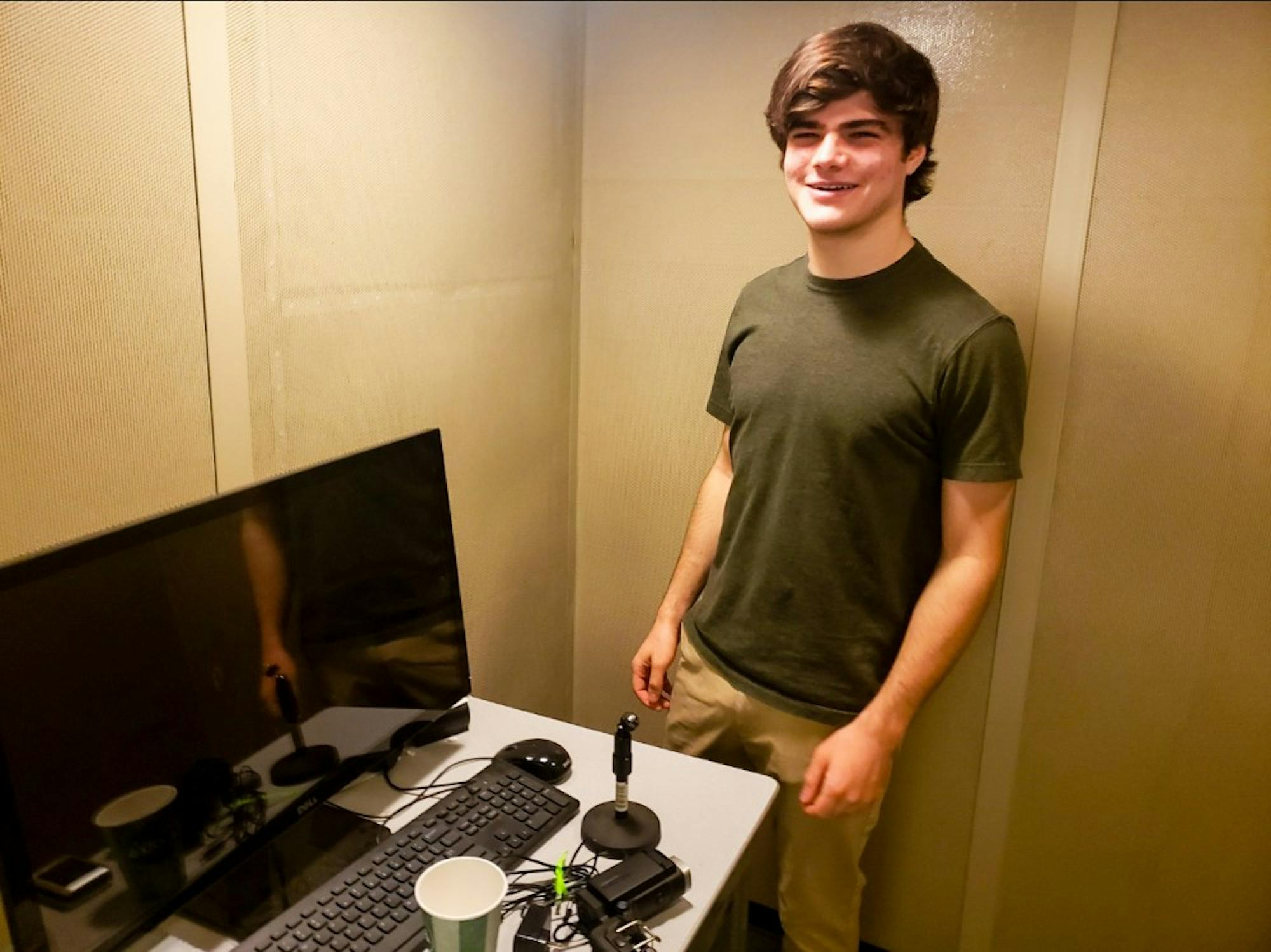It’s a teakettle! It’s a dog whistle! It’s Andrew Stanford of West Lebanon recently breaking the Guinness World Record for highest note whistled — and it was whistled in Dartmouth’s linguistics lab. His whistle reached 8,372 hertz, eclipsing the previously established record of 7,040 hertz.
According to Stanford, son of Dartmouth linguistics professor James Stanford, he could not whistle as a kid, and only started whistling in high school. He added that his first whistles sounded like high-pitched bird calls, and through practice have grown higher and louder.
Stanford said that throughout high school, his friends and teachers told him that his whistling was really high pitched — one teacher even thought there was a bird in the classroom after hearing Stanford’s whistle. A few years ago, he decided to Google search the record for highest pitch ever whistled.
After listening to the pitch of the previous record holder, he realized his own whistle exceeded the previously established record by at least 1,000 hertz. By matching his whistles with online sound tests, he realized that his pitch was between 8,000 and 9,000 hertz.
Stanford said that for about a year, he knew that he could probably beat the record, but he never gave a possible attempt any serious consideration. He said he felt that being officially recognized as a Guinness World Record holder was “inaccessible.” However, his friends kept pushing him to break the record, and he eventually applied for consideration.
Stanford’s father suggested that Stanford break the record in Dartmouth’s linguistics lab, located in the basement of Reed Hall. To become recognized as a record holder, Stanford explained to Guinness World Records exactly when he would break the record, where he would do it and how it would be officially witnessed by professionals.
The original stipulations for the Guinness World Record stated that music experts were required to participate in the recording, but Stanford made the pitch that linguistics professors could serve as an acceptable substitute.
“I think they just weren’t aware of the types of skills and equipment that linguists use in modern linguistics,” James Stanford said. “We have equipment that can measure pitch just as effectively because we do a lot of acoustic analysis of speech sounds and whistle frequency. It was very straightforward to measure with our equipment.”
James Stanford, along with three linguistics professors, Laura McPherson, David Peterson and Timothy Pulju gathered in the lab. According to McPherson, the three professors were there to verify that Stanford’s whistle was naturally produced, not something tweaked with software.
“We packed four adults into our sound booth, which is probably a record itself,” McPherson said.
After Stanford whistled at his highest tone, the professors ran the recording through an acoustic analysis software to determine the pitch. Stanford said that, though he easily broke the previous record, he did not beat his own personal record.
As to why he can whistle at such a pitch, Stanford said, “It’s possible that my lips and tongue are unique, but it’s also possible that I’ve come across something new that can be taught to anyone.”
He added that he would like to get his whistling analyzed by infrared thermography cameras. He has a general idea of what he does differently from others — he raises and bends his tongue to create a narrow airstream, lowers his jaw and then brings his lips inward to form a tiny aperture where the sound vibrates.
“But it’s hard to tell exactly what I’m doing,” Stanford said. “Infrared thermography would show exactly what’s going on in my mouth.”
According to Stanford, both he and the previous record holder, Dillon McBride, a zoology major at the Ohio State University, are around the same age, play the trumpet and were unable to whistle when they were younger.
Stanford said that the press since he broke the record has been “surreal” and “bizarre.” After he broke the record, he thought that at most he might get featured in his college newspaper, the Calvin College Chimes. However, he has been featured on a number of news outlets, including the Michigan Public Radio and New Hampshire Public Radio.
Despite his recent accomplishment, Stanford has already applied again to try to break his own record with a goal of reaching 10,000 hertz. He said that at that point no one would be able to top it, and he would be “competing with birds.”




